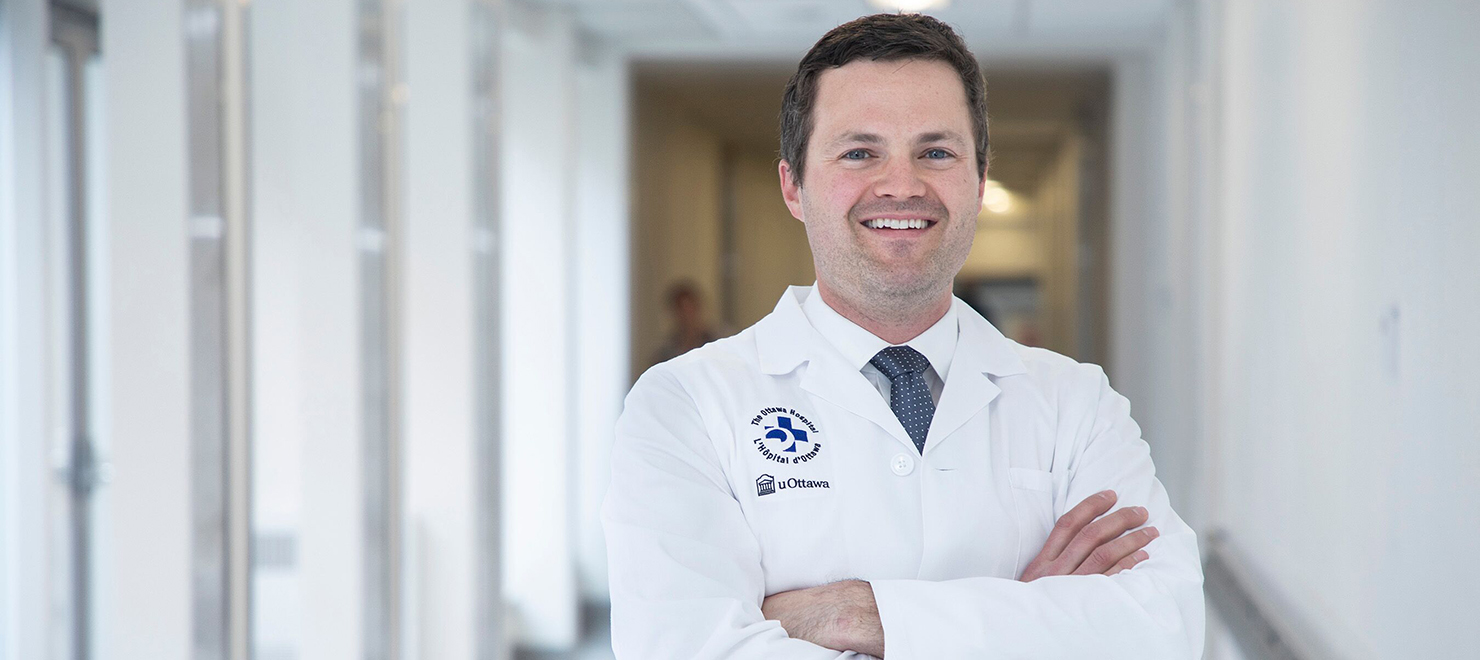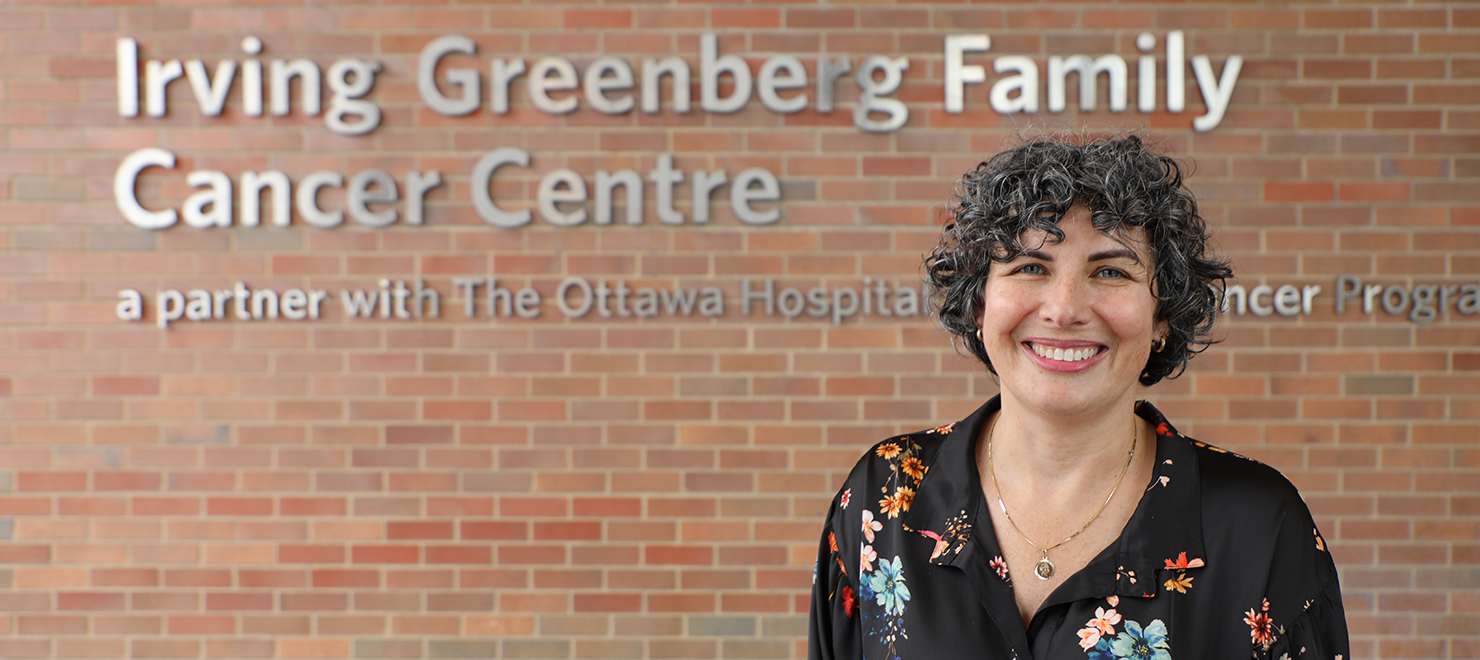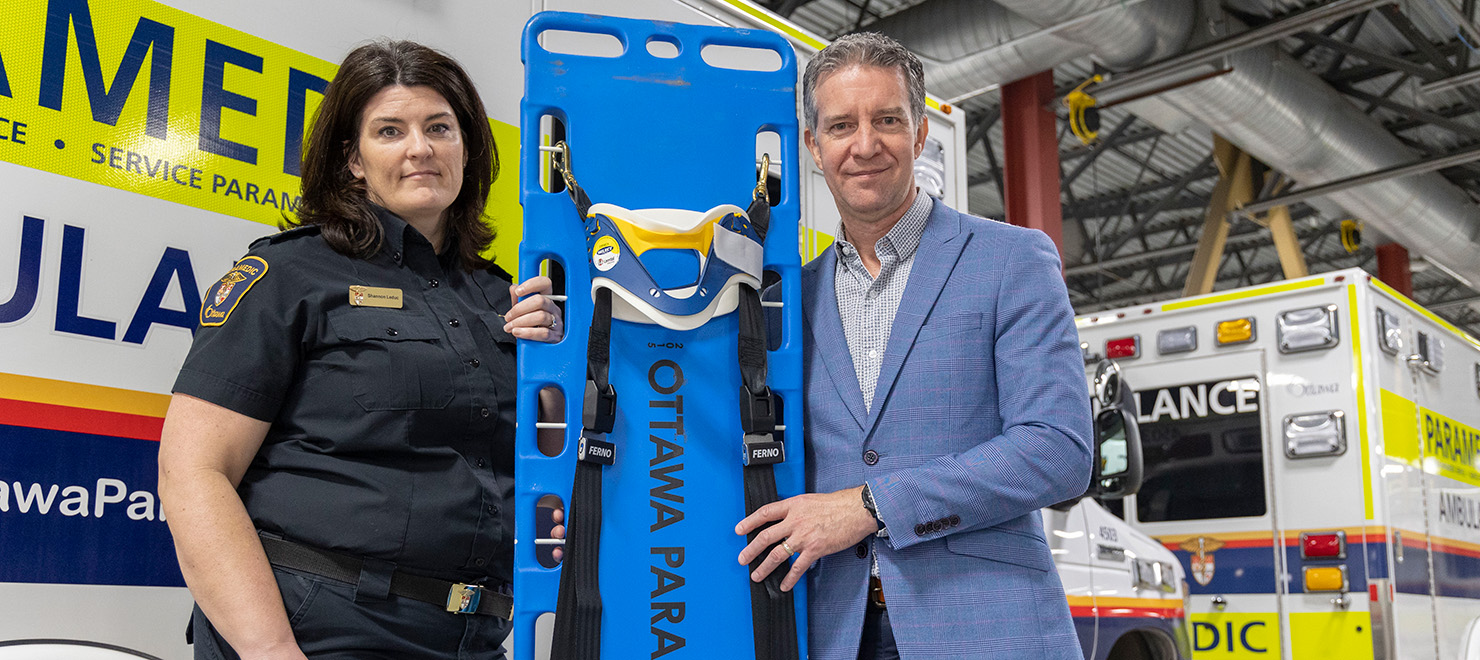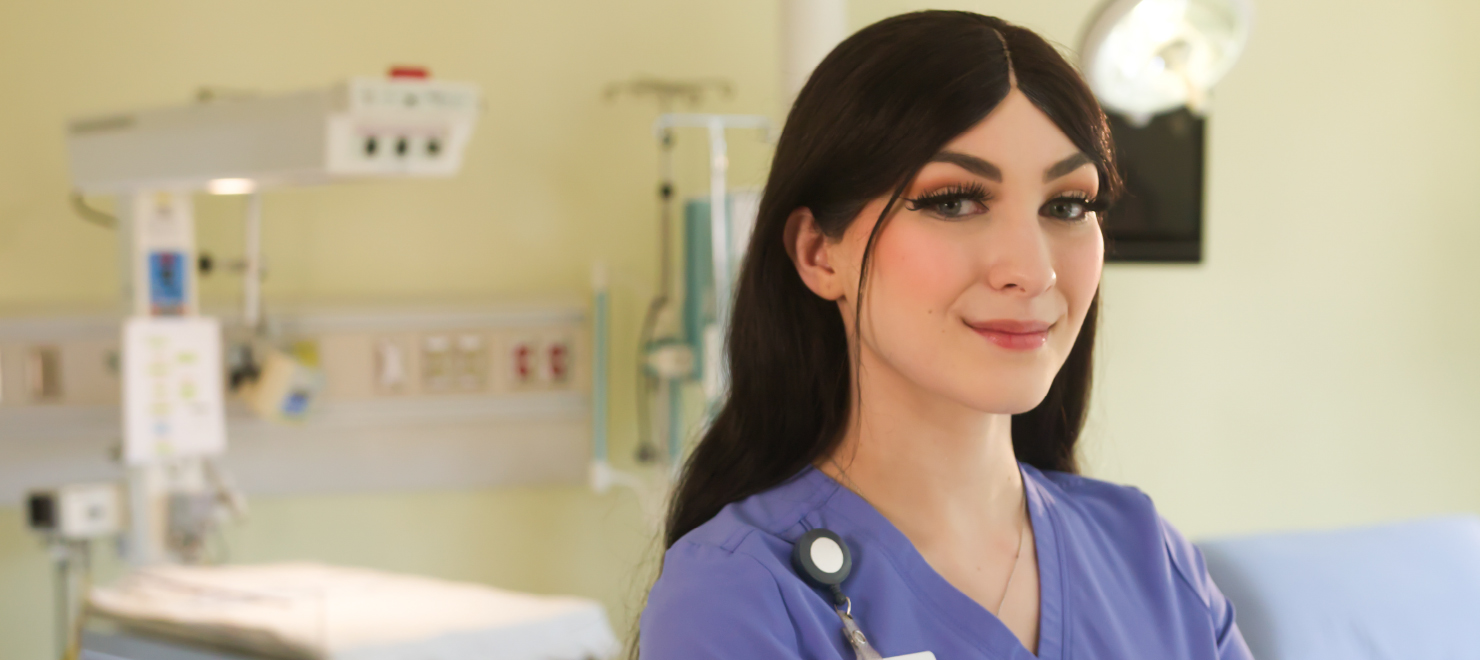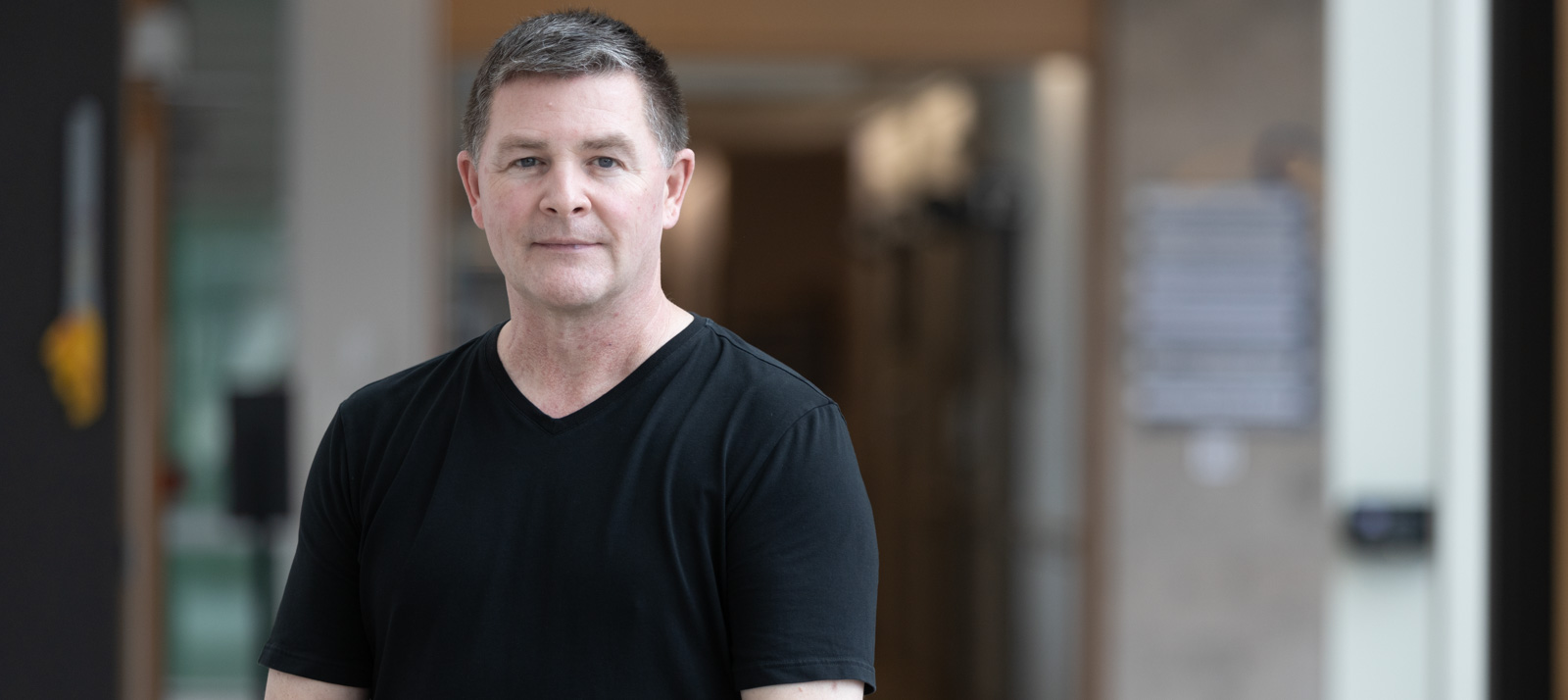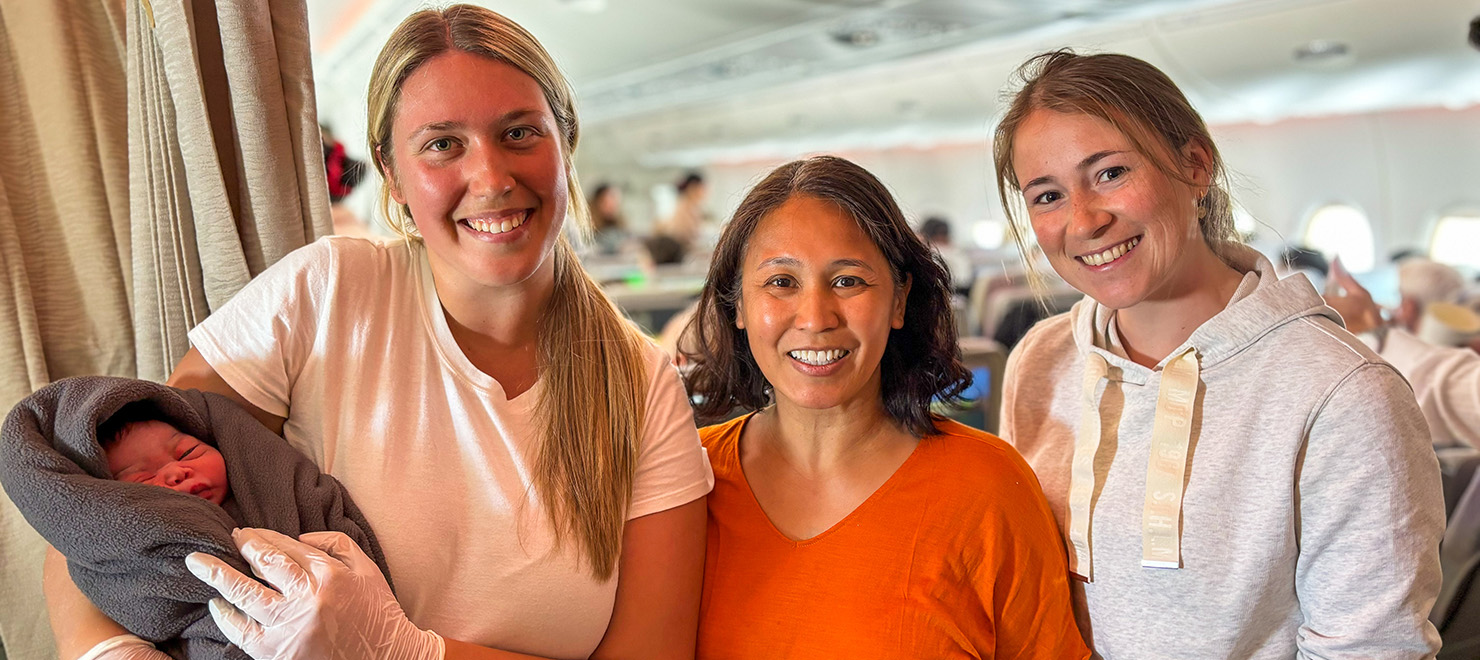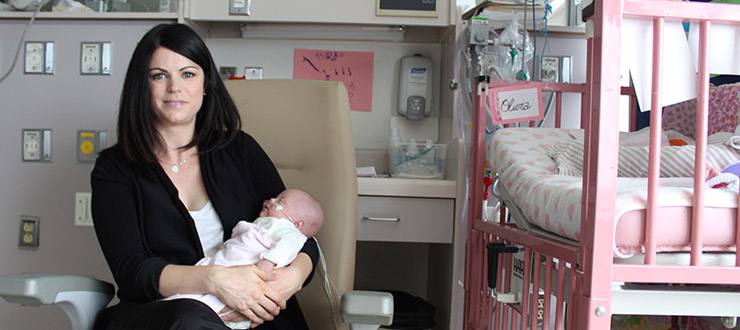
Dr. Bernard Thébaud and his team are hoping to harness stem cells from umbilical cords to treat chronic lung diseases in extremely premature babies like Olivia Eberts. “She’s a miracle because she wasn’t expected to survive,” said her mother, Jamie-Lee Eberts.
From the day she was born, Olivia Eberts has been a fighter. Born 115 days before her due date, at 23 weeks and 4 days, she has persevered through a heart surgery and multiple health problems.
“She’s a miracle because she wasn’t expected to survive,” said her mother, Jamie-Lee Eberts. “It’s going to be a lifelong battle for her, and we don’t know what the future may bring.”
Unfortunately some of the breathing equipment that helped keep Olivia alive has damaged her developing lungs, causing a chronic condition called Bronchopulmonary dysplasia (BPD).
She is one of the 1,000 babies born prematurely in Canada every year who will be diagnosed with BPD. This condition harms the brain and stunts growth, and complications can lead to blindness or cerebral palsy. There is no cure.
Dr. Bernard Thébaud wants to change that. The neonatologist and senior scientist at The Ottawa Hospital and CHEO is working on a therapy for BPD based on umbilical cord stem cells.
“What we see in the lab is very promising,” said Dr. Thébaud, also a professor at the University of Ottawa. “We think stem cells are going to be a game-changer for these babies.”
Dr. Thébaud’s team discovered that stem cells from umbilical cords could prevent and even repair lung damage in animal models of BPD. The cells act like mini pharmacies, diagnosing the problem at hand and dispensing the appropriate healing factors.
Now his goal is to bring this discovery to the sick babies he sees every day through a clinical trial, which he hopes to launch in the near future. His team recently received a grant from the Ontario Institute for Regenerative Medicine that will help them do the necessary research to prepare for just such a trial.
“I am confident that we have the talent and the tools here to find a treatment for BPD,” said Dr. Thébaud. “I moved to Ottawa specifically to drive stem cell treatments to the clinic. Step by step, our findings are helping us get there.”

Support patient care and research at
The Ottawa Hospital
You might also like…
Do you have a surgery coming up? Here are five “prehab” tips to help you recover faster
You’ve probably heard about rehabilitation, but what about “prehabilitation”? Prehab is all about getting your body and mind in top shape before surgery so you can enjoy a smoother, quicker recovery. Discover five essential prehab strategies from researcher Dr. Daniel McIsaac.
By thinking differently, this research team is improving the lives of people with cancer
Taking a different approach to clinical trials, the REthinking Clinical Trials (REaCT) program aims to answer some of the most important and practical questions that affect both patients with cancer and our health-care system. Find out what sets REaCT apart and makes the program so special to participants like Beth.
Does this backboard look comfortable to you?
Imagine this: You’re flat on your back, strapped tight to a rigid backboard, unable to move at all. Fortunately, this is no longer the reality for most low-risk trauma patients when they’re brought to hospital in our province. Find out how researchers at The Ottawa Hospital teamed up with paramedics across Ontario to make the journey a lot more comfortable.
Caring for your newborn and yourself: A post-birth guide for parents
Have you just given birth? Are you expecting soon? In this series of videos, Registered Nurse Samantha Adams shares essential advice for those early days at home.
Ever have a tough time making a medical decision? These tools can help you
When faced with a medical condition, there may not be one clear path forward — but we have something to help you with that. The Ottawa Hospital is home to the largest collection of decision aids in the world, covering everything from various cancers to depression to allergies.
Baby on board: Nurses jump into action to help deliver baby during flight
When a woman went into labour in the middle of a seven-hour flight, Eunice and Lindsey immediately volunteered their services. The two neonatal intensive care nurses had to rely on their experience — and a little improvisation — to help deliver and resuscitate a baby girl.


 To reset, hold the Ctrl key, then press 0.
To reset, hold the Ctrl key, then press 0.
